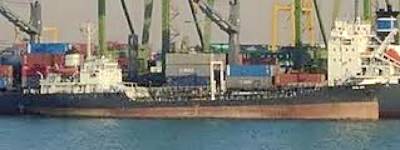PARWAN PROVINCE, Afghanistan, Sept. 28, 2010 — The top U.S. commander in Afghanistan toured the U.S. Detention Facility here yesterday, and discussed his vision for detention operations in Afghanistan.
“When I took command of Multinational Force-Iraq in February 2007, we still had Camp Bucca with 17,000 detainees at that time and it grew larger,” said Army Gen. David H. Petraeus, commander, International Security Assistance Force and commander, U.S. Forces Afghanistan. “We still had all of the detainees in huge enclosures. It was just fenced-in enclosures of about 800 to 900 detainees per enclosure. Obviously, we have come a long way since then.”
Combined Joint Interagency Task Force-435, in partnership with the Government of the Islamic Republic of Afghanistan, and U.S. interagency and international partners, conducts operations in detention, corrections, the judicial sector and biometrics. Next year the CJIATF will transition detention operations to Afghan control while partnering with Afghan authorities to promote rule of law practices.
Petraeus said his team had implemented job training and rehabilitation programs, routine detainee review boards, integration of host nation legal activities, and shuras, or meetings, to get communities to re-embrace detainees when they were released.
“All that began a good bit of what you see today,” said Petraeus, who was joined by his deputy commander for detention operations, U.S. Navy Vice Adm. Robert Harward, commander, Combined Joint Interagency Task Force-435.
Petraeus said when he left Iraq and assumed command of U.S. Central Command in 2008, one of his first acts was to send U.S. Marine Corps Maj. Gen. Douglas Stone to survey the detention operations situation in Afghanistan. Now retired, Stone served as Petraeus’ deputy commander for detention operations in Iraq.
“He came back in the spring of 2009 and had a number of recommendations — a number of those have led to what you have seen right here,” said Petraeus. Parwan’s state-of-the-art theater internment facility opened in December 2009.
Petraeus said the focus was initially on detainee operations, which, over time, expanded to training Afghans to take on detention facility tasks.
In January 2010, Afghan government officials signed a memorandum of understanding that guides the process for the Afghan Ministry of Defense to take the lead on assuming responsibility for the Parwan detention facility.
In the memo key ministries agreed to identify and assign personnel to staff the facility, working alongside American personnel through the transition process. Currently more than 160 Afghan soldiers have completed required training and joined the 1,200 U.S. servicemembers who make up the guard force. Another 600 ANA soldiers are currently in training to join their Afghan and U.S. counterparts.
The detention facility’s design accommodates detainee reintegration efforts and enables CJIATF-435 to better align detention operations with the overall strategy to defeat the extremist insurgency in Afghanistan.
“This is about doing it right. And I really mean that,” Petraeus said. “The fact is that what we wanted to do was do it properly.”
During his tour of the detention facility, Petraeus received a briefing on detainee reintegration programs and he also visited the detainee agriculture training area. Eligible detainees at the facility may participate in literacy and educational programs. Earlier this year reintegration officials at the detention facility implemented vocational training for eligible detainees including bread making, agriculture and tailoring.
Reintegration, under Petraeus’ counterinsurgency strategy, includes removing Afghan fighters by bringing those willing to renounce violence and accept the Afghan constitution back into their communities with honor and dignity. It is about creating conditions through community-based programs, public protection, and sustainable economic opportunities so fighters have incentives to live peacefully and return to their communities.
As part of ongoing efforts to evaluate the effectiveness of reintegration programs, last week, Harward and CJIATF-435’s Afghan Deputy Commander, Maj. Gen. Marjan Shuja, met with members of the Afghan government, community members and 22 former detainees to discuss reintegration successes and challenges for the released men.
Petraeus said he has seen progress in the short time since the Parwan detention facility opened and implemented reintegration and rehabilitation programs for detainees.
“The recidivism rates so far on those who have been released are very low indeed,” the general said.
Source:
U.S. Department of Defense
Office of the Assistant Secretary of Defense (Public Affairs)

 von
von 

